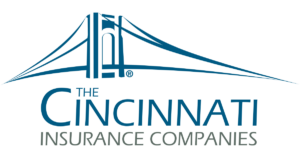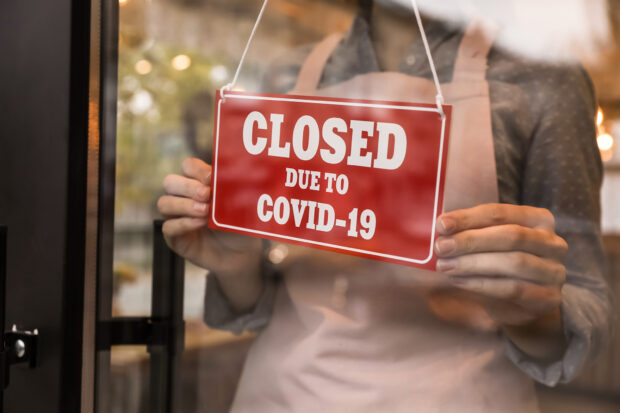Courts across the country have overwhelmingly ruled in favor of insurance carriers in claims disputes following the government-ordered closures of businesses during the COVID-19 pandemic. The North Carolina Supreme Court last week bucked that trend, becoming just the second state high court to find that an insurer owes coverage for business losses during the shutdown.
“Because a reasonable policyholder in the restaurants’ shoes could expect ‘direct physical loss’ to property, as used in this policy, to include the results of COVID-19-era government orders which affected the restaurants’ use of and access to their physical property, and because the policy otherwise contains no exclusion for viruses, we construe the ambiguity here in favor of coverage,” the North Carolina Supreme Court justices wrote in North State Deli vs. The Cincinnati Insurance Co. and Morris Insurance Agency, handed down Friday, Dec. 13. The opinion can be read here.
The decision turned in large part on the wording of the Cincinnati policies for some 15 restaurants in the state. The ruling may have significant reach since Cincinnati likely used similar policy wording for other businesses around the country. The Cincinnati companies are third on the list of insurance carriers involved in COVID claims litigation, with at least 187 suits, behind The Hartford and Zurich Insurance Group, according to the University of Pennsylvania law school, which has tracked COVID suits since early 2020.
 On the same day as the North State Deli opinion, the NC high court released a companion ruling, upholding a state appeals court and finding that Zurich American Insurance was not liable for COVID losses to the Cato Corp., a major clothing retailer. In that case, the court found that Zurich was spared coverage precisely because of policy language that excluded virus contamination.
On the same day as the North State Deli opinion, the NC high court released a companion ruling, upholding a state appeals court and finding that Zurich American Insurance was not liable for COVID losses to the Cato Corp., a major clothing retailer. In that case, the court found that Zurich was spared coverage precisely because of policy language that excluded virus contamination.
In North State Deli, Cincinnati Insurance had no virus exclusion built into its policies, unlike the vast majority of commercial policies around the nation, the court said, citing data from the National Association of Insurance Commissioners. Cincinnati’s attorneys, instead, had argued that the business-interruption supplement to the restaurant policies – which was nearly identical for all of the plaintiff restaurants – covered only physical damage that forced the establishments to close down during the outbreak. Most COVID cases in recent years have been decided in favor of insurers due to the physical damage policy requirements.
But in the Deli case, the NC justices found that the all-risk policy wording covered “physical loss” or physical damage – two distinct perils. The policies did not define “physical loss,” but that term could reasonably be interpreted to mean loss of access to the property, the court noted. State government orders in early 2020 required the restaurants to cease operation or to serve only carry-out as the virus spread world-wide.
“Contrary to Cincinnati’s arguments … we fail to see why the ordinary meaning of ‘direct physical loss’ is entirely insensitive to the ‘use’ for which a property is insured,” Justice Anita Earls wrote in the Deli opinion.
She compared the COVID virus scenario to a 2015 New Hampshire case in which a homeowner was precluded from living in the house because of the unremovable odor of cat urine. The home may not have been physically damaged, but it was unlivable and should be covered by insurance, the New Hampshire court had found.
“This overlap between property ‘use’ and ‘loss’ follows from a contextual and common-sense expectation that insurance should protect from threats to property that make it unusable for the purpose for which it is insured,” the NC court wrote. “Property ‘loss’ surely occurs when it is no longer usable for its insured purpose, as a policyholder would reasonably expect. Thus, when the restaurants lost physical use of their properties as restaurants due to the pandemic orders, they experienced a direct physical loss.”
A key point in the restaurants’ argument, the court said, was that one restaurant owner testified that he had asked his insurance agent specifically if the policy would cover virus outbreaks. North Carolina restaurants were wary of virus-borne diseases after several community outbreaks of a norovirus, which causes digestive illness, according to the court and news reports.
The broker allegedly told the restaurateur that a virus event would be covered, the court explained. That broker, Morris Insurance Agency, with offices in Raleigh and Washington, North Carolina, is a named defendant in the restaurants’ lawsuit.

The Morris Agency could not be reached for comment Sunday for this article. Cincinnati Insurance companies said in a statement: “While we respect this ruling from the North Carolina Supreme Court, we have agreed with the nearly 20 state supreme courts and all 11 federal appellate courts that did not find coverage for pandemic-related business interruption claims under our property insurance policy. We will now work with the trial court and our policyholder to determine appropriate next steps in the adjudication process.”
Attorney Marshall Gilinsky, with the Anderson Kill law firm, who helped write an amicus brief on behalf of two North Carolina cities, said in an email the ruling is “an important win for policyholders in North Carolina and hopefully beyond – one that adheres to basic insurance law principles and holds insurance companies responsible for the promises they make in the policies they sell.”
Gilinsky pointed out that the justices pulled from the amicus brief, which cited a Connecticut law journal article that was critical of the many court rulings in favor of insurance companies on similar COVID business interruption issues. Also, the Carolina cities argued in the brief that the policyholders who purchased policies without virus exclusions “reasonably expected coverage for virus-related business-interruption losses,” Gilinsky noted.
The case had been closely watched around the country. The American Property Casualty Insurance Association wrote an amicus brief, as did the NC attorney general, and United Policyholders and National Independent Venue Association.
The litigation is not over. In the ruling, the Supreme Court overturned an appeals court decision but upheld a Durham County Superior Court judge. The case now goes back to the trial court for further proceedings.
The North State Deli suit was similar to another case that was litigated in federal court in North Carolina: Novant Health vs. American Guarantee and Liability Insurance Co. The plaintiffs in that case argued that the air inside the business was damaged, and confusing policy wording did not bar coverage.
Novant was seen as something of a bellwether case and it had received interest from third-party litigation funders. But the case settled out of court in 2022 and details were not made public, leaving many questions unanswered.
Related: Vermont Supreme Court’s 2022 Ruling on COVID Coverage





















 Lessons From 25 Years Leading Accident & Health at Crum & Forster
Lessons From 25 Years Leading Accident & Health at Crum & Forster  Insurance Groundhogs Warming Up to Market Changes
Insurance Groundhogs Warming Up to Market Changes  Retired NASCAR Driver Greg Biffle Wasn’t Piloting Plane Before Deadly Crash
Retired NASCAR Driver Greg Biffle Wasn’t Piloting Plane Before Deadly Crash  Modern Underwriting Technology: Decisive Steps to Successful Implementation
Modern Underwriting Technology: Decisive Steps to Successful Implementation 




